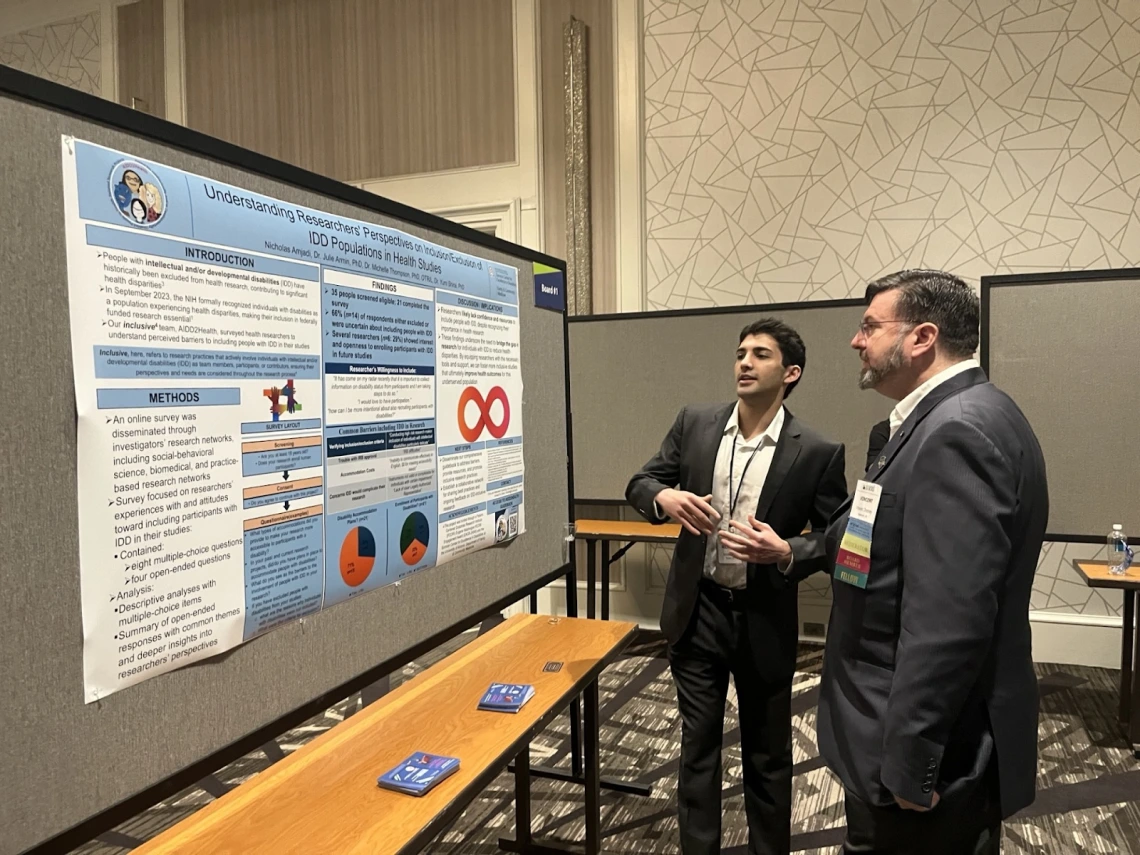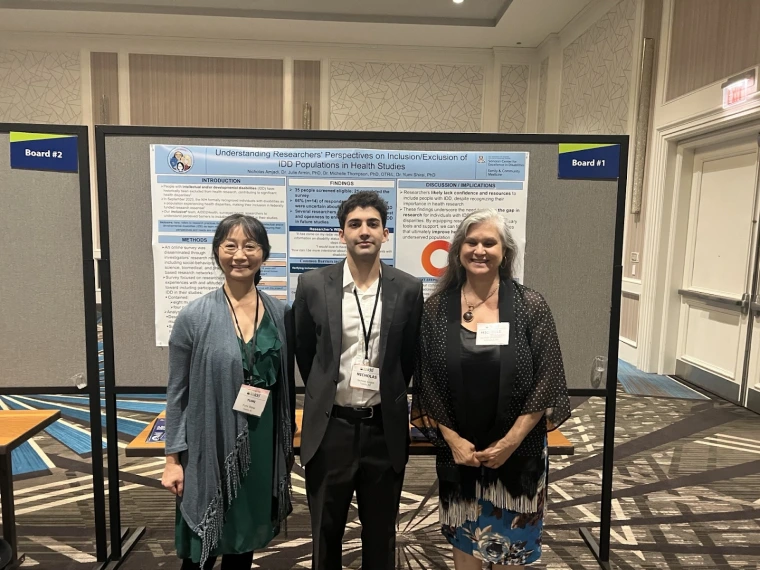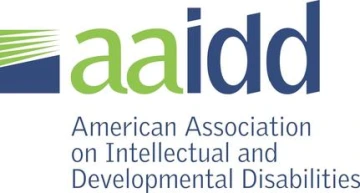American Association on Intellectual and Developmental Disabilities Conference Recap

Many individuals with intellectual and/or developmental disabilities (IDD) are excluded from health research. The AIDD2Health project team—an inclusive group of self and family advocates, researchers, and professionals—works to promote the inclusion of people with IDD in health research. At the annual conference of the American Association on Intellectual and Developmental Disabilities (AAIDD), Sonoran Center staff, faculty, and students participated in four presentations: two poster symposia and two poster sessions. Two presentations featured the AIDD2Health project.
Health Researcher Perspectives on Including People with IDD in Health Research Projects: The AIDD2Health team surveyed health researchers to understand barriers to including people with IDD in their studies. Nicholas Amjadi, a Sonoran Center Trainee (undergraduate student, BS in medicine major), presented the preliminary findings.

Adapting Health Research to Make it Accessible to People with IDD: The AIDD2Health Team collaborated with the Music & Health Story Lab, led by Dr. Jennie Gubner, and ArtWorks, a community art studio and gallery for artists with IDD, to make a community-based research project accessible. The poster shared the research adaptation process, tools, strategies, and a link to the resulting music digital story.
The other two presentations were in collaboration with the AAIDD Creative Arts Interest Network.
The AAIDD Creative Arts Interest Network is a "community of practice" focused on sharing creativity to promote the well-being of children and adults with IDD. Members exchange knowledge and ideas to facilitate fellowship, research, and practice. Dr. Shirai has held a leadership role in this network for several years, and this year, two presentations came from this group.
Achieving Equity in Community-Based Creative Arts Groups: This poster symposium presented findings from NEA-funded research on how the COVID-19 pandemic affected creative arts organizations serving artists with IDD. Using online surveys and follow-up interviews, the research team—Drs. Shirai, Thompson, and Shetron—reviewed descriptive data and conducted thematic and reflective analyses to capture technology-based changes these organizations implemented, along with an in-depth reflection on the meaning of these changes for future practice.
Bridging the Transformative Power of Creative Arts: AAIDD works to foster an inclusive culture that promotes equity and enhances the quality of life, health, and well-being of people with IDD across the lifespan. The Creative Arts Interest Network (IN) focuses on sharing knowledge, research, and practices that enhance lives through creative arts such as visual arts, dance, theatre, and music. This review highlighted the intersections between the Creative Arts IN and AAIDD's 18 other interest networks, demonstrating how creativity and the arts promote self-expression, self-determination, inclusion, and belonging in various areas of life.

